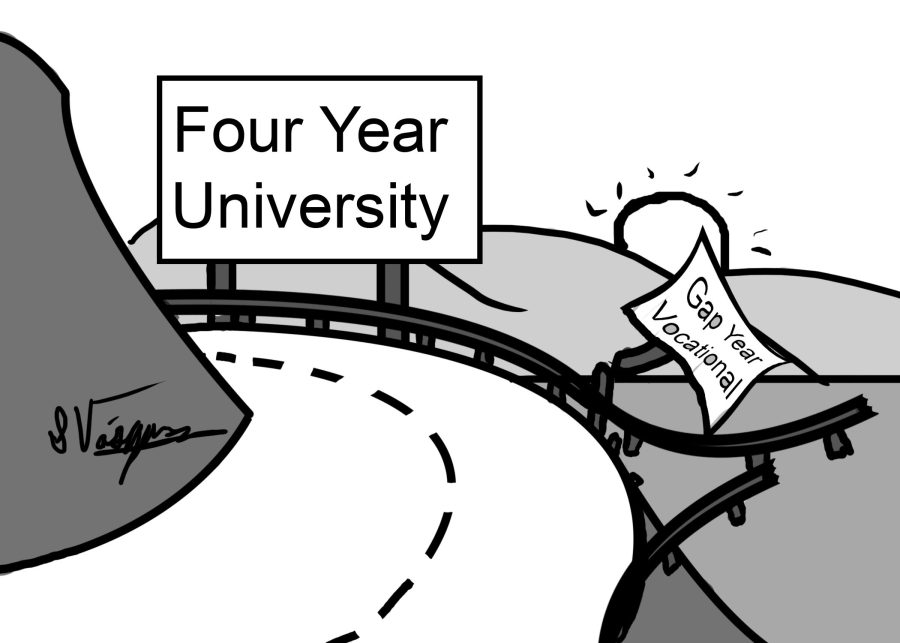Growing up in Palo Alto comes with both benefits and drawbacks. Paly and Gunn are nationally recognized, and the amazing opportunities provided to students give them the skills to compete in the real world. However, the fast pace of this incredibly driven environment makes it hard to go against the majority by choosing a different path without facing an uphill battle of scrutiny and unanswered questions. For some students’ post high-school plans, they look for higher education at a four-year college. Others choose to complete their degrees at a community college for four years or transfer to a university after two years.
Though many Paly students will go on to earn a degree from either a two-year or four-year institution, there are other options that are available. Many people either do not realize the full potential of these options or have simply not been thoroughly educated about the subject. Some use a gap year to work and others seen it a an opportunity to travel before returning back to school. Planning a gap year can be a daunting task, and while there are pre-organized programs, it can be hard to find one well-suited to the individual. For people looking for a once-in-a-lifetime experience, the multitude of gap year programs can be scary to process.
Whether it is during the rare occasion that seniors have a scheduled advisory, during a meeting with a college counselor or at the public seminars held at school, Paly needs to show more initiative in educating its students about the pros and cons of taking a gap year.
There should be more information on how a gap year would benefit or hinder the college process for any future decisions after the gap year; it is not well-known that students can apply for college during their senior year of high school and notify the school of their choice to take a gap year. Although not all colleges will hold a spot for the student the next year, the process of looking for a college can coincide with looking for a gap year program. For example, senior Stella Carpenter will be taking a gap year in Norway.
“I didn’t ask for any information from the College and Career Center,” Carpenter said. “If anything, they mainly told me to not fill out the [financial aid form], which was unhelpful.”
Gap years can serve as a religious or cultural connection for people looking to use a year off before school for introspection or to work. Gap years are also taken by kids with earlier birthdays who want to enter college with people of the same age. It can also be helpful for those with dual-citizenship for foreign aid.
“I was always going to take a gap year in Norway to get more in touch with my heritage,” Carpenter said. “But it was also nice to know that I’ll be able to enter with other kids the same age. Plus, my dual-citizenship will help with scholarships that will carry over to my time at University of Oregon.”
Even though the majority of Paly students choose not take a gap year, they are at least aware that they can take a year off before reassessing their plans for the future. However, there is another form of education that is often overlooked and underrated: vocational schools.
Vocational colleges provide education to a particular skill or profession for a specific career. A school like this can provide technical skills in nursing, working in rehabilitation centers, welding or other careers requiring a specific set of skills; they work well for students who know exactly what they want as a career and how much money they plan on spending.
In this current day and age, vocational schools are often seen as obsolete and useless in the shadow of more brand-name schools providing general education, but bigger is not necessarily better.
If a student wants to be a nurse and applies to a university, the student would have to take general education classes that are not relevant to nursing in order to get enough credits to graduate.
However, by applying to a nursing-only school, the student will be allowed to focus solely on nursing and will be provided with the necessary skills to succeed in the workforce.

